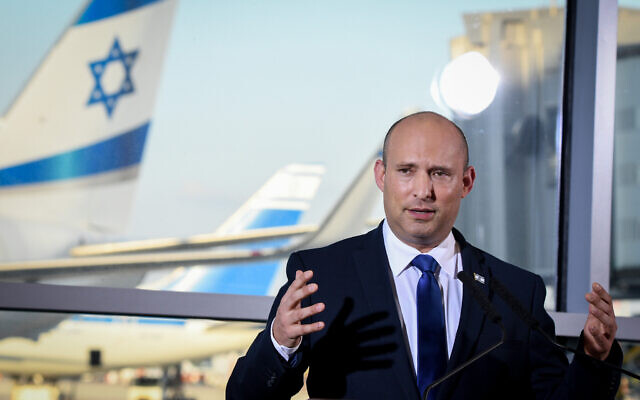Israel is once again expected to push off allowing individual tourists into the country amid concerns over rising COVID-19 morbidity, according to a television report on Saturday.
The postponement would see the return of general tourism move from August to September, according to Channel 13 news.
Israel has been allowing some tour groups into the country in recent months, but not tourists traveling independently. It had initially planned to reopen to the latter in May, but Health Ministry recommendations pushed the plans to June, then August, and that date is now expected to be moved back until September.
The network said the ministry is set to recommend the latest delay to the cabinet, though no official decision has been made yet.
The Health Ministry is also expected to recommend that children start the next school year by studying in socially distanced “capsules,” television reports said, due to worries that the coronavirus could spread among unvaccinated students.
According to Health Ministry data, some 35% of 12-15-year-olds have received a first dose of the Pfizer vaccine so far. Another 11% are designated as recovering from the virus.
According to Channel 12, as of Saturday, 200,000 12-15-year-olds have received the first dose of the vaccine, including 15,000 over the weekend. Three of the country’s largest HMOs said 50 percent of that age group has received the first shot, according to the network.
Saturday was the deadline for teens to get their first dose of the vaccine with the country’s current batch, as the existing stock of vaccines will expire at the end of July. Children aged 12-15 who did not get their first dose by Saturday will not be able to get their second dose three weeks later, and will be forced to wait until the next Pfizer batch arrives.
The next shipment of Pfizer shots had been expected to arrive in September. However, Channel 12 reported Saturday that Israel is in talks with Pfizer in the hopes of getting the next delivery in August. Outgoing Health Ministry director-general Chezy Levy confirmed to Kan news that officials were hoping to speed up the next delivery so that the inoculation of teens could continue.
Israeli youth receive the COVID-19 vaccine at a vaccination center in Tel Aviv, on July 6, 2021. (Jamal Awad/Flash90)
Meanwhile, people over the age of 16 will be able to be vaccinated with Moderna’s vaccine, which has not yet been approved for use in the under-16 age group.
On Saturday evening, the Health Ministry published updated COVID-19 figures showing that the number of seriously ill patients had risen to 43.
Some 700 news cases were diagnosed over the weekend.
The number of active cases stood at 4,064, and the death toll since the start of the pandemic rose by one to 6,435.
Of the 84,553 tests performed Friday, 0.7% came back positive, similar to the rate in recent days, but higher than last month’s positivity rate, which hovered near zero on some days.
On Wednesday and Thursday, the country saw the first deaths attributed to the virus in over two weeks.
The resurgence of the virus, due to the Delta variant, has become a major issue for Prime Minister Naftali Bennett’s new government, coming less than two months after the number of cases dwindled as a result of mass vaccination, allowing Israel to lift most restrictions and reopen public life.

Prime Minister Naftali Bennett delivers televised remarks at Ben Gurion Airport, on June 22, 2021. (Flash90)
On Friday, the Health Ministry announced that all travelers, including those vaccinated and those who recovered from COVID-19, would be required to self-isolate for up to 24 hours upon arrival to the country, starting late next week.
Meanwhile, those returning from 16 countries deemed to have high rates of infection will be required to fully self-isolate for 14 days, or 10 days with two negative tests, according to the ministry’s updated guidelines, which will go into effect on July 16.
Israelis who are vaccinated or who recovered from COVID-19 had been, until recently, largely exempt from quarantine upon returning to the country.
The Health Ministry on Friday also updated the list of countries with high rates of infection from which Israelis are barred. The countries that are off-limits for Israelis are Uzbekistan, Argentina, Belarus, Brazil, South Africa, India, Mexico and Russia.
The resurgence of coronavirus in Israel has been largely attributed to the spread of the Delta variant, which was first detected in India and is believed to be twice as contagious as the original COVID strain.